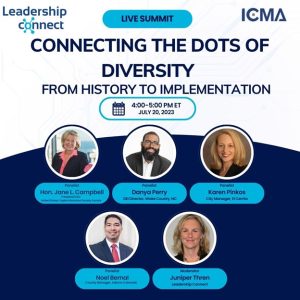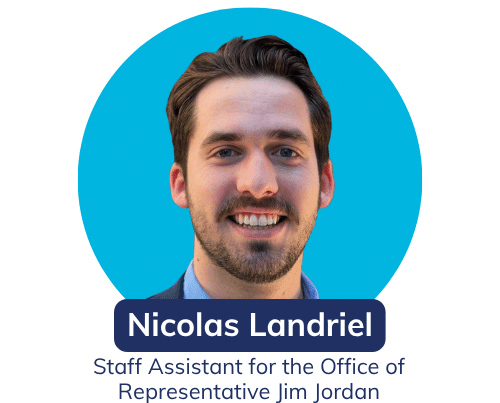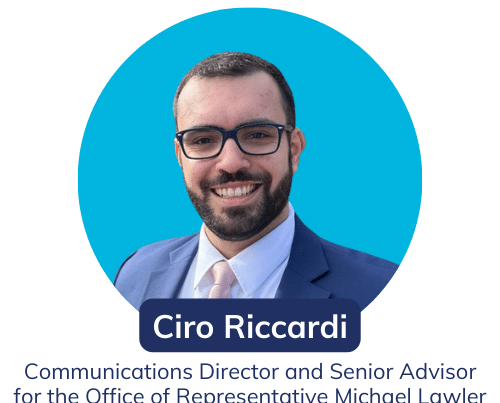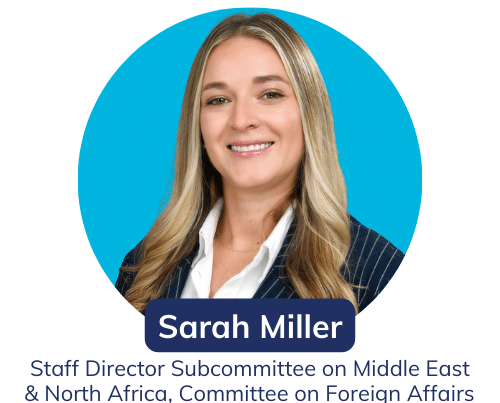On July 20, Leadership Connect’s Juniper Thren moderated a lively and inspiring panel for the annual ICMA Equity Summit. This panel – Connecting the Dots of Diversity: From History to Implementation – focused on the life and professional experiences of four panelists that have led to their passion and dedication to Diversity, Equity, and Inclusion (DEI) in their current leadership roles.
Meet the panelists:

After an hour-long discussion about the DEI in local governments and historical milestones, how to implement it effectively in the workplace, and how to move forward in this space, here are four takeaways from the live webinar:
- DEI is a greater issue than a single role in a company. Each and every person needs to take on the role of DEI ambassador.
- Getting to know your community is essential in understanding your city’s individual DEI needs.
- Taking the lead from DEI “the firsts” and pioneers in families, communities, and other leadership roles is the best way to understand the value of these efforts for change.
- Taking a hard look at your system to ensure that the structures in place aren’t excluding any group is how you can make lasting changes and ensure that all factions of the community are being heard.
Let’s take a deeper dive into these topics to better understand why our panelists pushed these messages so strongly to the audience:
Everyone is a DEI manager
As Karen stated in the webinar, her city, like many others, does not have the budget to employ someone solely for the role of DEI manager. For this reason, she and her team have the mindset that everyone is the DEI manager, encouraging mindfulness and attention to the subject on all levels of leadership.
Danya spoke to this idea through the lens of creating a work environment that promotes an environment where people can feel safe and encouraged to speak up about this subject, which will in turn remove any “colorblindness” and normalize these conversations. He stressed how interpersonal relationships are extremely important among coworkers and those who share community spaces so that there can be a level of comfort for people to enter the space.
Along those same lines, Noel commented that the future progress of DEI is built on tearing down your personal walls and sharing your life stories to build stronger relationships with people in the space so that you can unify to create a community of change and equity together by expanding your circle of influence.
You can’t help your community if you don’t see them
All our panelists took the time to comment on the idea that DEI programs and efforts are never going to be as effective if you do not know who you are creating them for. Public leaders and elected officials have a duty to themselves and their communities to make a real push to understand who they represent and what they need. Noel stated that this is an ever-changing process, as his community of Adams County, CO has recently become a majority minority environment, forcing him to make sure that he and his team can adjust and adapt to the needs of those minority groups who need their voices heard.
Karen walked us through how she has implemented a Human Relations Commission that works hands on in the community to hold educational events, panels, and interactive celebrations like a parade on Martin Luther King, Jr. Day to promote the message of DEI in the community all while understanding the neighborhoods on a deeper level that can then be communicated up the chain to decision-makers. Despite her community’s lack of financial resources, this team of volunteers has put DEI at the forefront of local leaders’ and community members’ minds daily.
Jane gave the audience a concrete example of this idea as she mentioned that in Cleveland, a city with a strong African American community, she noticed that the city prosecutor’s office only had one African American employed. She immediately recognized and rectified that problem with a more intentional search for employees who reflect the community they serve.
Never forget where you started
Each of our panelists has had influences and forces in their lives that brought them here today. For example, Jane shared that she was the first elected official in Ohio history to become pregnant while in office. The press and the public seemed baffled by the idea of a mother in a leadership role, and she obviously saw that as a gendered inequality for all women in the workforce.
Danya told a very moving story about how his mother was one of the first African American girls to integrated schools. He learned about her experiences and how she persevered in pursuit of diversity and equality and that inspiration seems to be a driving force for him as it places higher value on his role and the opportunity he has been given because of everything that people before him had to endure.
In addition to those personal stories, we also heard a lot about community history from Karen and Noel, as Karen stated that she often heard the phrase “the first” placed in front of minority groups in important leadership roles. One of her goals is to remove that phrase and have DEI so inherently baked into the culture and community that it is too common to be noted as “the first.”
A systemic problem starts with the system
The main message from all the panelists was that changing the way leadership and employment is structured is the best way to make lasting and impactful changes to communities. Jane opened the conversation with her emphasis on hiring in a way that reflects that population. In her office, she leveraged her hiring authority to make significant changes to her office with the first Asian, Hindu, women, and other minority groups join over the years.
Noel told the audience that his definition DEI expands on the normal standard as he works to include both rural and suburban communities as county manager. He also talked about how he challenges the system by analyzing the data and making sure it matches with his DEI messaging. For example, he noticed in the numbers that there was a gendered pay inequality. Danya also doubled down on Noel’s advice to look closely at the data. He said that making sure your data reflects your values is the best way to avoid and eliminate performative allyship as a company. Keeping a watchful eye on the tangible ways to implement DEI every day is something that Noel emphasized and puts into practice.
Karen said that she holds herself accountable when recruiting new employees by removing certain education and experience requirements from the job descriptions that could eliminate certain groups from consideration. She works hard to look beneath the surface of a resume to see how any unconventional skillsets and paths could aid her office’s endeavors in new and less traditional ways.
Lastly, Danya and Noel echoed Karen’s sentiment of more intentional hiring practices and he expanded that notion to say that those efforts must remain to promote retention, happiness, and inclusion once employees have been brought onboard. Danya noted that his county took the time to create opportunities for their employees as they asked them what their value proposition for work is. He stated that the common answer among all employees regardless of age or status was the idea of “meaning over money.” He explained that these employees valued having a place to work where they can be entirely themselves and know that their work has greater meaning than simply punching a clock is the key to retention and a positive environment for DEI to flourish.






